The 30-year anniversary of the Velvet Revolution culminates today, November 17. Concerts, processions and debates, will be taking place in cities across the Czech Republic.
November 17
On November 17, 1989, student protesters filled the streets of Prague. It was eight days after the fall of the Berlin Wall.
November 18
Striking actors in Prague opened theater stages only for public discussions, and university and performing arts students went on strike. Homemade posters and proclamations were posted in public spaces, and actors read a proclamation by the students and artists to audiences, calling for a general strike on 27 November.
November 19
In Prague, the Civic Forum (OF), which called for a change of the regime, was created. It was led by Václav Havel and other dissidents from Charter 77.
November 20
The students were joined in the coming days by Czechoslovak citizens of all ages. By Nov. 20, a half-million Czechs and Slovaks filled Prague’s streets and took over Wenceslas Square. The Communists were forced out.
Secretary General of the Central Committee of the Communist Party of Czechoslovakia, Miloš Jakeš, invited the so-called People’s Militia to Prague. They received weapons and ammunition.
November 21
Havel met with VPN representative Peter Zajac, marking the very first meeting between the two opposition movements. PM Ladislav Adamec agreed to meet with the representatives of the opposition, but on the condition that Havel would not be present.
Some 200,000 people demonstrated in Wenceslas Square in Prague.
November 23
Havel told the demonstration in Prague said that there was no way back to the totalitarian regime. The Minister of Defense also delivered a television address in which he called for an end to the demonstrations, but also declared that the army would not take action against the Czechoslovak people.
November 24
Alexander Dubcek appeared on the Melantrich balcony with Vaclav Havel. The meeting broke up with chants of “Dubcek to the Castle” and calls for another mass demonstration on the larger Letna plain.
Miloš Jakeš, the General Secretary of Communist Party resigned.
November 26
Half a million people attended a massive demonstration in Letna. This time the crowd were addressed by the Prime Minister Ladislav Adamec.
November 27
A two hour symbolic general strike takes place. It would take place at midday and students volunteered to man crucial shift work and emergency services, so that production and public safety would not suffer. The strike action was successful – over 50% of the entire population stopped working.
November 28
Representatives of OF, VPN, the federal parliament and PM Adamec met in Prague. Adamec promised to introduce the government by December 3. They discussed the release of political prisoners and the abolishment of articles about the leading role of the party and the Marxism-Leninism doctrine.
November 29
Parliament voted in favor of the legislation and also abolished the provision that made Marxist-Leninist ideology a mandatory part of school curriculum. After ten days of non-violent protest, the the Party had lost their stranglehold on the Czechoslovak state.
December 3
The Soviet Union and the Warsaw Pact issued separate statements condemning their invasion of Czechoslovakia in 1968.
December 7
Adamec resigns as Prime Minister.
December 10
After he swore in a new government of opposition activists and moderate Communists under Communist Prime Minister Marian Calfa, Husak finally stepped down as president.
December 16
Havel appears on television and announces he would accept the presidency, but only until free elections can be held.
December 20
Disturbing the Peace, a book which records an extended conversation between Havel and Karel Hvizdala (a Czech journalist living in Bonn, Germany), is released. The publisher, Melantrich, has put together and released the book in an unprecedented ten days.
December 29
Havel is unanimously elected President of Czechoslovakia by the parliament.
The first demonstrations took place in January 1989. Protesters marking 20 years since Jan Palach self-immolated in protest against the Soviet-led invasion of 1968 were brutally dispersed by police.
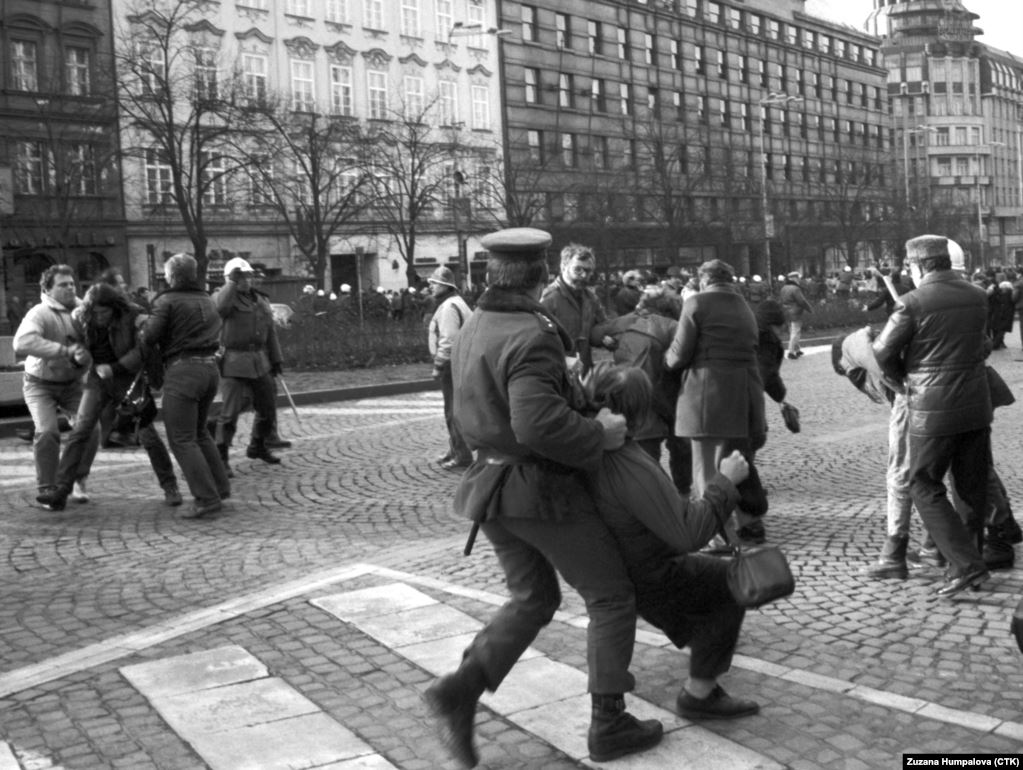
The next protest was held on October 28, 1989, the anniversary of the founding of Czechoslovakia in 1918.
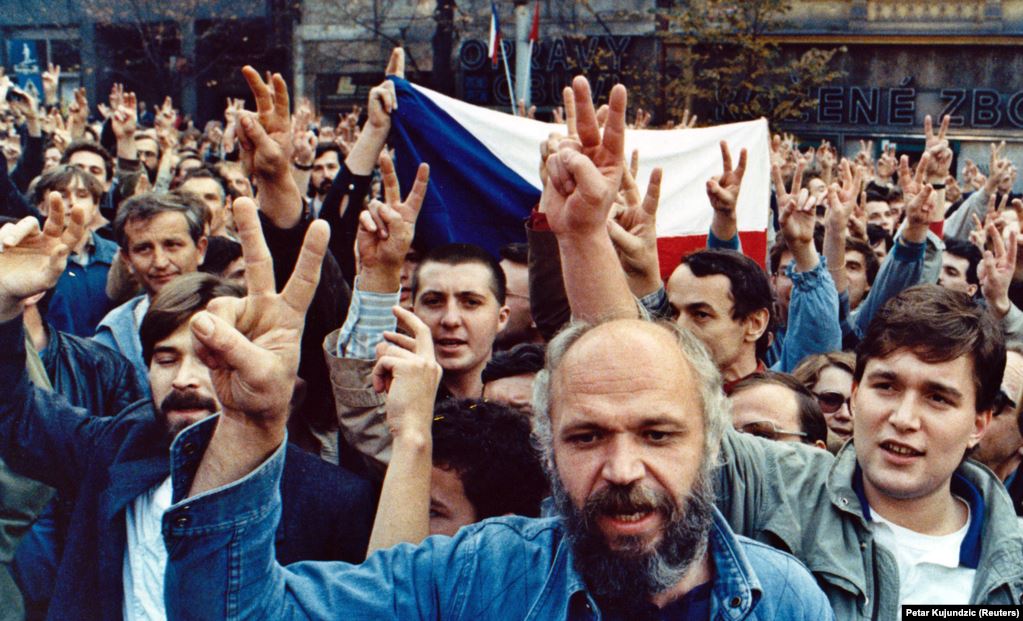
November 17, 1989: the biggest protest for 20 years.
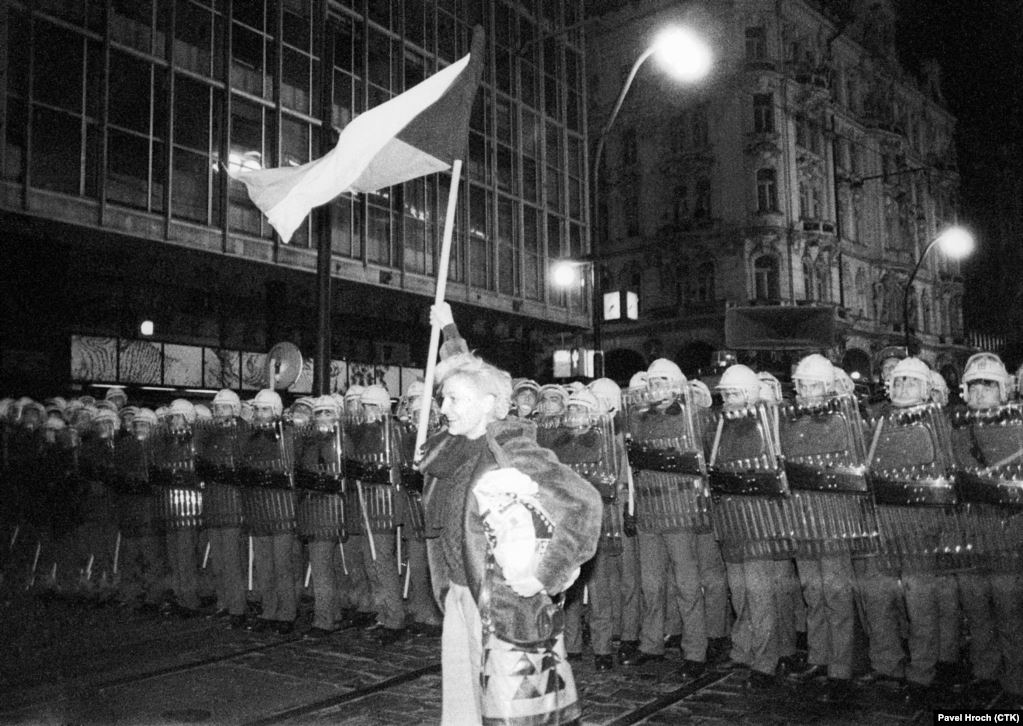
On November 19, riot police blocked a bridge to prevent protesters marching to Prague Castle.
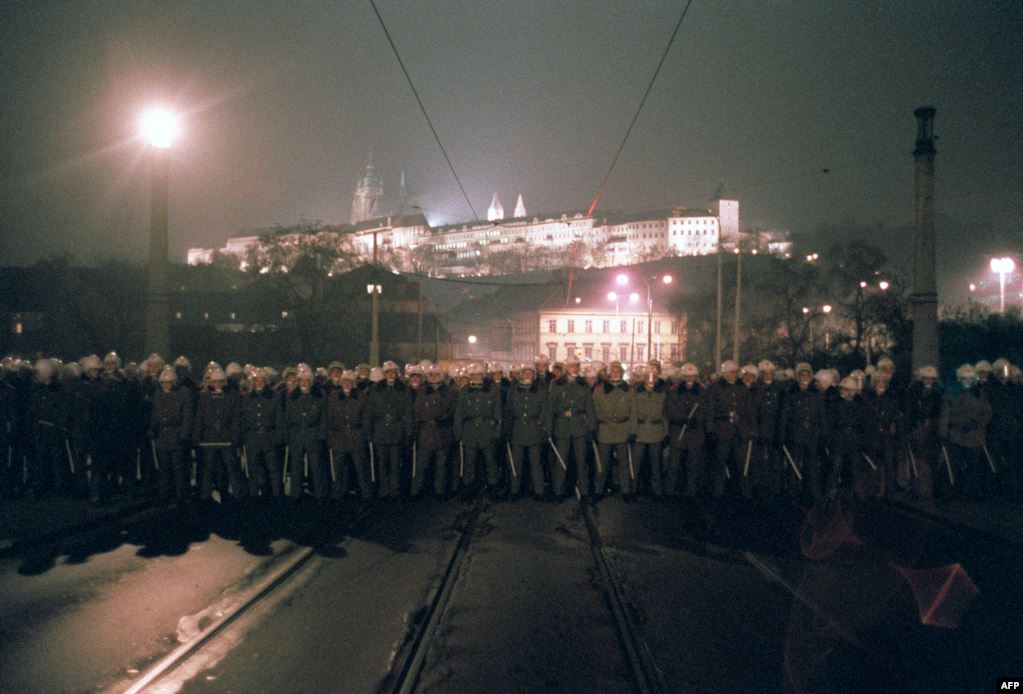
On November 21, more than 200,000 demonstrators took to the streets of Prague for a fifth consecutive day of protests.
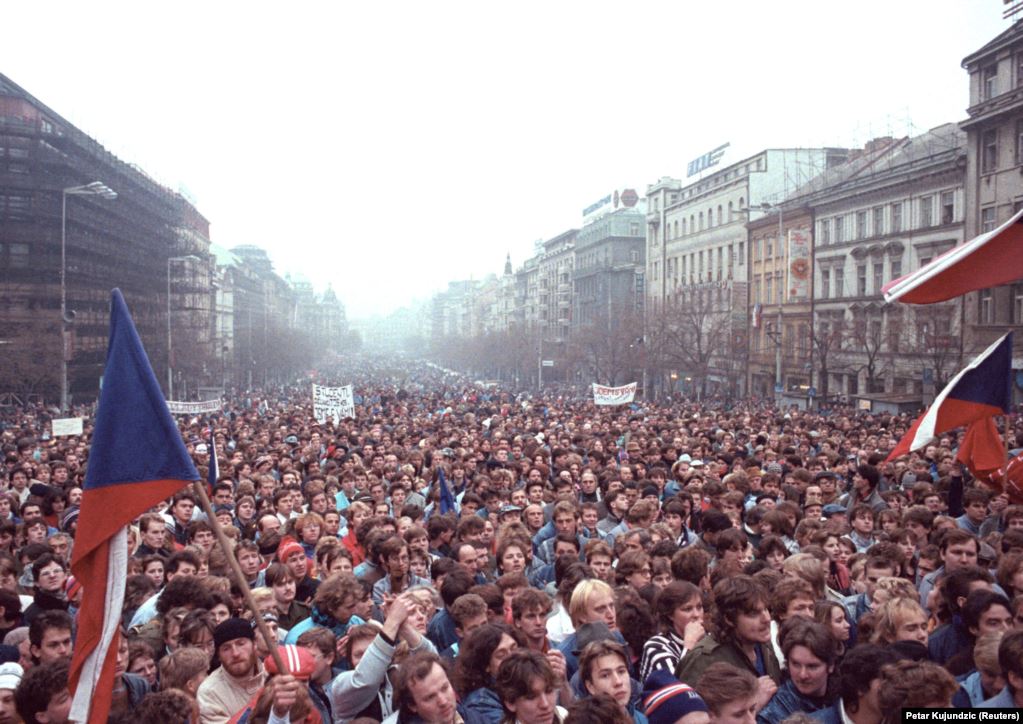
Vaclav Havel addressed the massive crowd from a balcony overlooking Wenceslas Square.
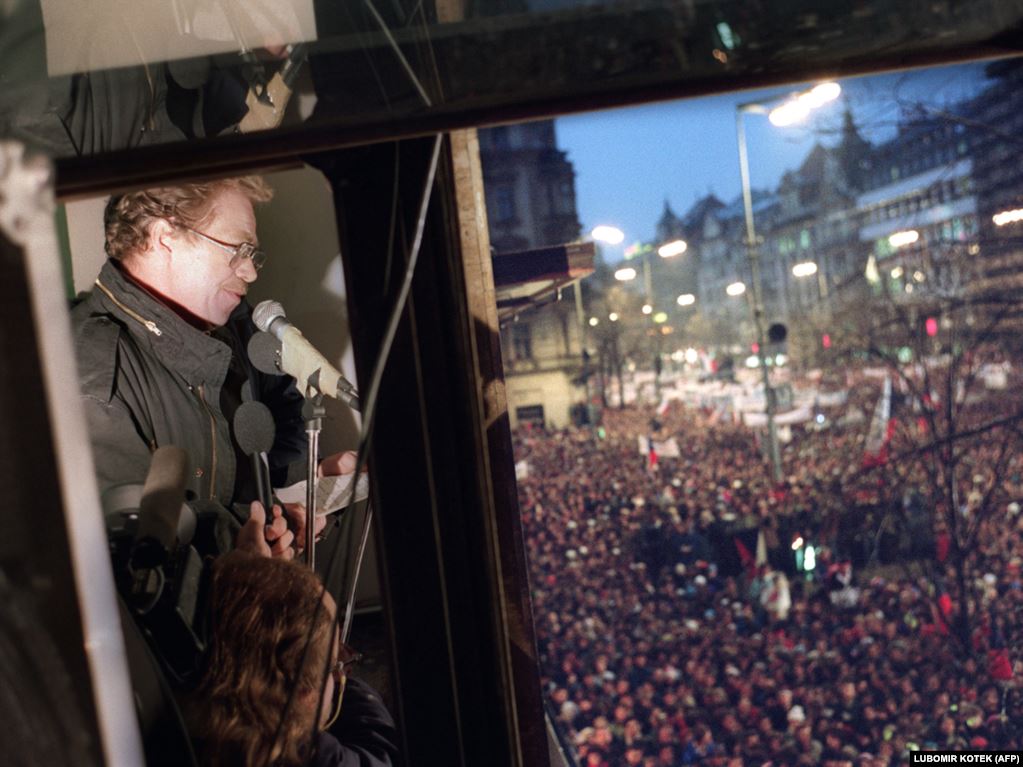
Half a million people came to listen to speeches from Havel and other opposition leaders.
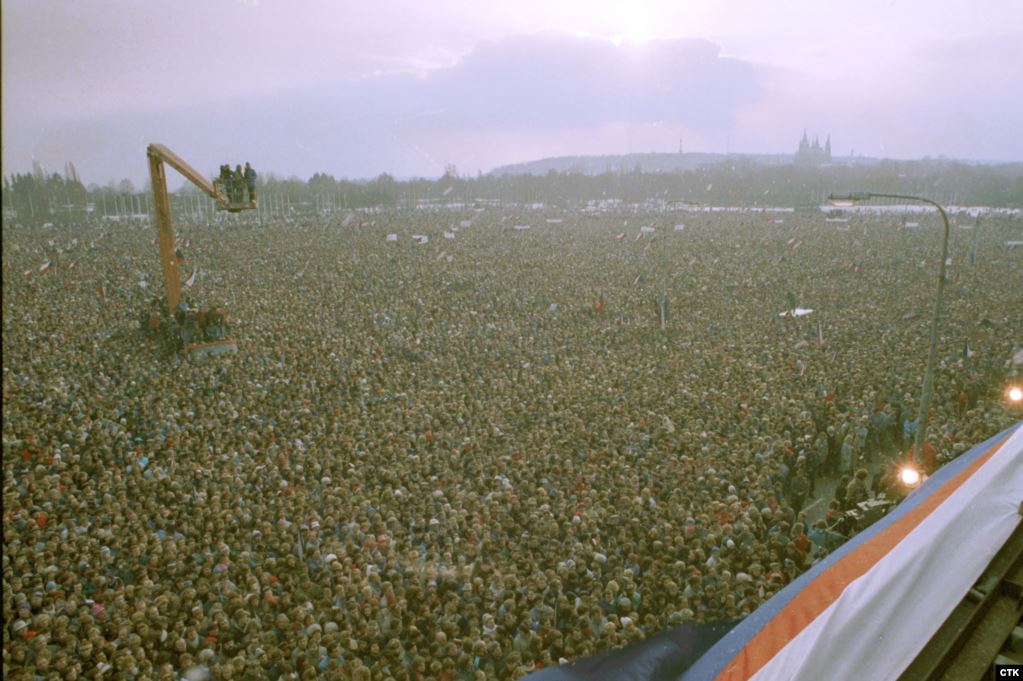
Wenceslas Square, December 19, 1989.
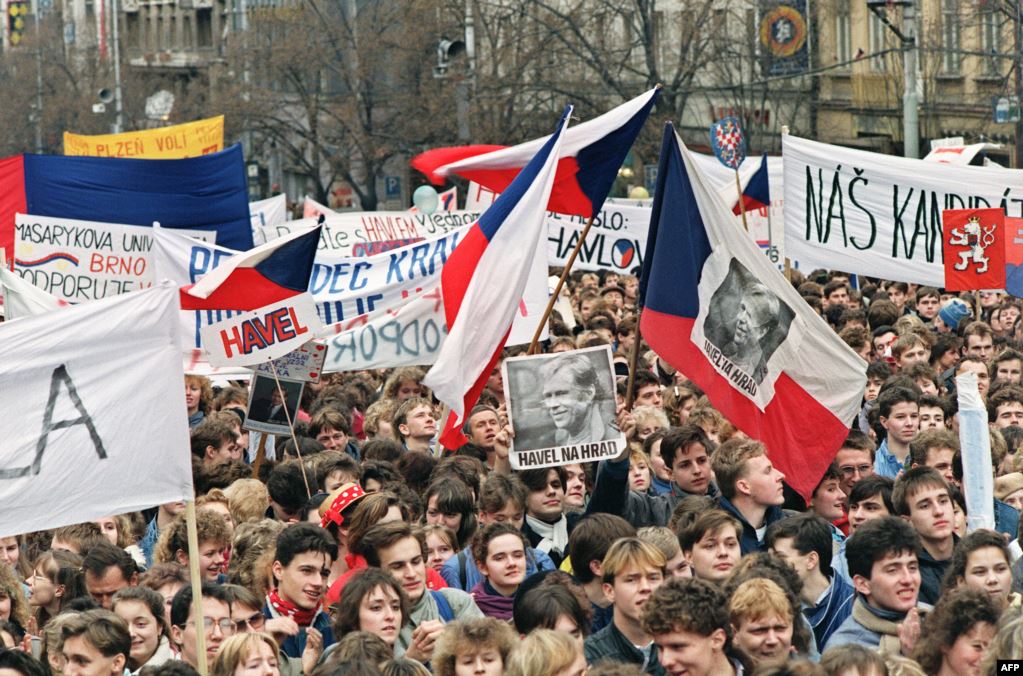
On December 29, 1989, Vaclav Havel and his wife, Olga, greeted citizens at Prague Castle after being appointed by the Federal Assembly as the new president of Czechoslovakia
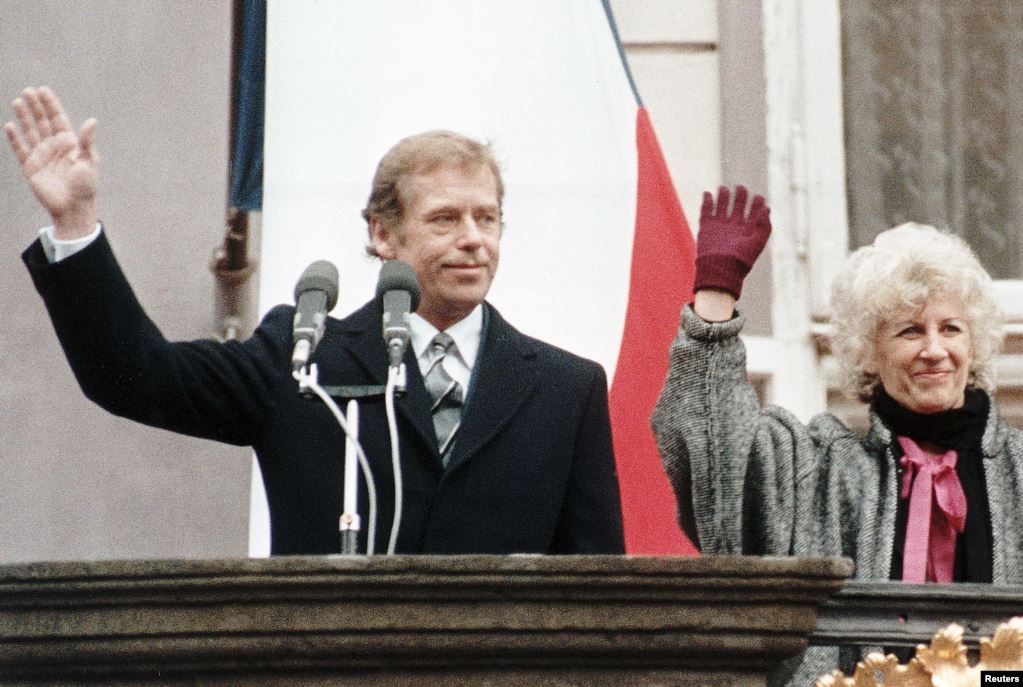
December 31, 1989.
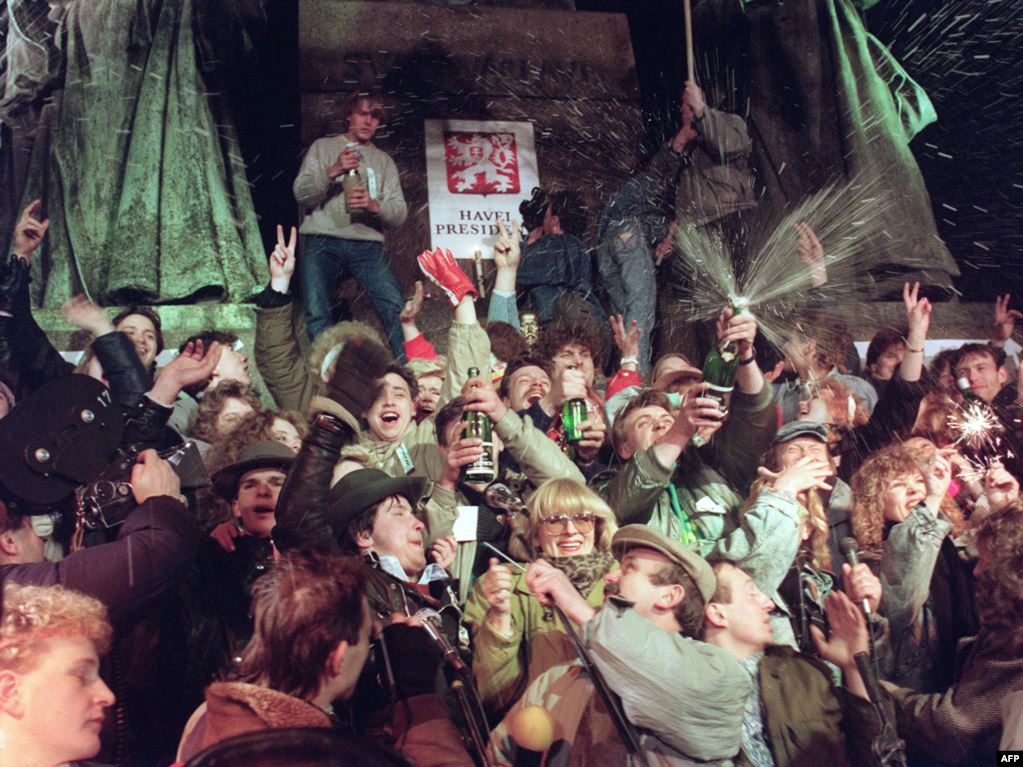
Today marks 83 years since the birth of Václav Havel.
The last Czechoslovak and first Czech President was born in October 1936 into a prominent Prague entrepreneurial and intellectual family. His father, Václav Maria Havel, a successful structural engineer, was the second-generation head of the family building development tradition. His mother, Božena, came from the Vavrečka family, with art-literary and technical talents. She no doubt represented a great role model for her sons, in whom she cultivated a freedom-loving spirit, but also set the bar of aspiration high for them.
As the son of bourgeois parents, Havel was denied easy access to education but managed to finish high school and study at the university level. He found work as a stagehand in a Prague theatrical company in 1959 and soon began writing plays with Ivan Vyskočil.
He was a prominent participant in the liberal reforms of 1968 (known as the Prague Spring), and, after the Soviet clampdown on Czechoslovakia that year, his plays were banned and his passport was confiscated. During the 1970s and ’80s he was repeatedly arrested and served four years in prison (1979–83) for his activities on behalf of human rights in Czechoslovakia. After his release from prison, Havel remained in his homeland.
The key event was the writing of Charter 77. This was essentially a grass-roots initiative on the one hand, criticizing how the ruling party was wielding power, and on the other hand and appeal to uphold the commitments of the International Conference in Helsinki, which prominently featured human rights and became a thorn in the side of the Communist regime. Václav Havel as co-author also played an important role as the press spokesman for this initiative to the outside world. He did not have long to wait for repercussions from the powers-that-be. In 1979, Václav Havel was convicted of subversion and sentenced to four and a half years in prison, unconditionally, having already received a prior conditional sentence of 14 months. After his release, he was under the constant supervision of the secret police, the StB.
Havel’s first solo play, Zahradní slavnost (1963; The Garden Party), typified his work in its absurdist, satirical examination of bureaucratic routines and their dehumanizing effects. Havel continued to write plays steadily until the late 1980s; these works include Ztížená možnost soustředění (1968; The Increased Difficulty of Concentration); Spiklenci (1971; The Conspirators); the three one-act plays Audience (1975), Vernisáž (1975; Private View), and Protest (1978); Largo Desolato (1985); and Zítra to Spustíme (1988; Tomorrow).
When massive antigovernment demonstrations erupted in Prague in November 1989, Havel became the leading figure in the Civic Forum, a new coalition of noncommunist opposition groups pressing for democratic reforms.
In early December the Communist Party capitulated and formed a coalition government with the Civic Forum. As a result of an agreement between the partners in this bloodless “Velvet Revolution,” Havel was elected to the post of interim president of Czechoslovakia on December 29, 1989, and he was re-elected to the presidency on July 1990, becoming the country’s first noncommunist leader since 1948.
As the Czechoslovak union faced dissolution in 1992, Havel, who opposed the division, resigned from office. The following year he was elected president of the new Czech Republic. His political role, however, was limited, as Prime Minister Václav Klaus (1993–97) commanded much of the power. In 1998 Havel was reelected by a narrow margin, and, under his presidency, the Czech Republic joined the North Atlantic Treaty Organization (NATO) in 1999. Barred constitutionally from seeking a third term, he stepped down as president in 2003.
The Czech Center New York together with its partners have prepared a rich and varied program of events dedicated to the celebration of the 30th anniversary of the Velvet Revolution.
The overarching theme of the events is freedom. Concerts, theater performances, exhibitions, film screenings, discussions, and other programs will be held at the Bohemian Nation Hall in Manhattan from September to November 2019.
The main events include the performance of Audience, the one-act theater play by Václav Havel, starring Jakub Špalek and Jan Potměšil. The actors are also figures who have become part of the history of the Velvet Revolution itself, and they will discuss their experiences and insights after their performance, which is part of the Rehearsal for Truth Theater Festival.
No less expected is the concert of the band Garage, one of the symbols of the Czech independent music scene. Just like Audience, the Garage concert will be performed in two other American cities as well: Washington, D.C. and Chicago.
The Czech Center New York Gallery will also present two exhibitions. The exhibition Václav Havel, Citizen and Dramatist, prepared by the Arts and Theater Institute (Prague), will be on view from September through October. In November and December, it will be followed by an exhibition of the National Museum of the Czech Republic, specially prepared for the United States and other Czech Centers in the world, called Velvet Revolution 1989.
The program of the 30th-anniversary celebration will also include a special concert performed by the New York Mannes School of Music, which will introduce Czech composers and premiere a new composition by a US-based composer in honor of Václav Havel.
Visitors will also be able to learn about the history of the Velvet Revolution during the guided tours of the Bohemian National Hall (Open House New York) and other discussions and film screenings.
The highlight of the celebrations will be on Friday, November 8, 2019, when a diverse series of events is prepared at the Bohemian National Hall in New York, including discussions, tours of the Velvet Revolution 1989 exhibition, and a reception. The main part of the evening will be the concert of the legendary Czech band Spirituál Kvintet that will perform in New York as part of their 60th – and last – concert tour season.

